artificialintelligence
Latest

AI reveals hidden objects in the dark
You might not see most objects in near-total darkness, but AI can. MIT scientists have developed a technique that uses a deep neural network to spot objects in extremely low light. The team trained the network to look for transparent patterns in dark images by feeding it 10,000 purposefully dark, grainy and out-of-focus pictures as well as the patterns those pictures are supposed to represent. The strategy not only gave the neural network an idea of what to expect, but highlighted hidden transparent objects by producing ripples in what little light was present.
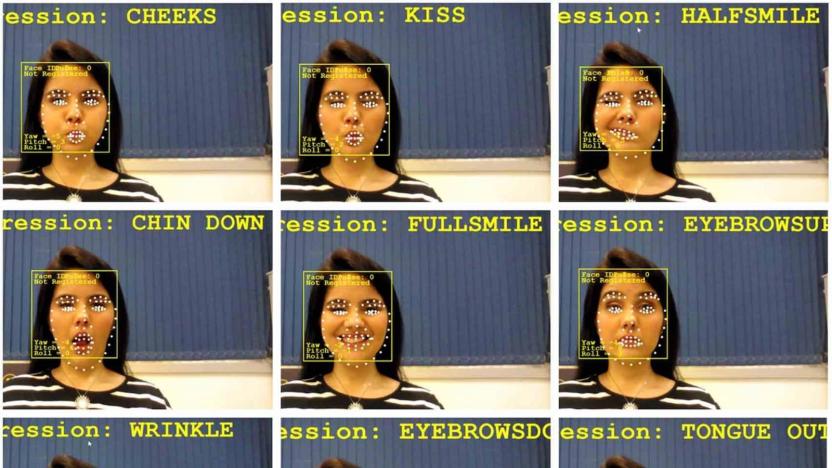
Intel's AI wheelchair can be controlled by facial expressions
Motorized wheelchairs are traditionally controlled by a joystick or sensors attached to the user's body, but now innovation in artificial intelligence is helping severely disabled people drive their chairs with their facial expressions.
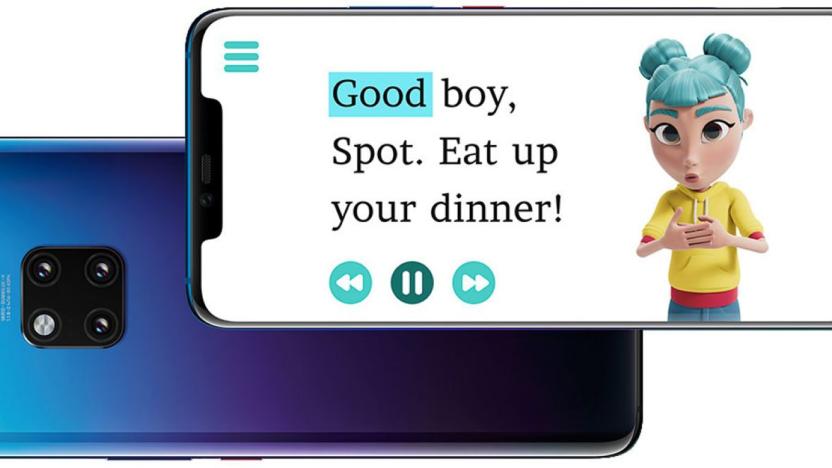
Huawei app uses AI to help deaf children read
Deaf children face challenges learning to read. As their parents and teachers often don't know sign language, young ones can't always make the connection between words on the page and their own life experiences. Huawei aims to fix that with its StorySign app for Android. Point your phone at certain children's books and the app will use AI to translate individual words on the page to sign language performed by an avatar (created by Wallace and Gromit's Aardman Animations, no less). This not only helps children read, but can teach parents the sign language they'd need to tell the story later.

Amazon tests checkout-free shopping for larger stores
Amazon's checkout-free Go stores might hint at the future of retail, but they're small locations that aren't much good if you need more than lunch or a bag of chips. You might see more soon, though. Wall Street Journal sources say Amazon is testing a version of its computer vision-based shopping technology for larger stores. It's not certain how close the company might be to trying this in the real world (it's currently running in a Seattle space "formatted like a big store"). It won't shock you to hear where the tech might go if it's successful, however.

Facebook and MIT tap AI to give addresses to people without them
About four billion people in the world are without a physical address. The MIT Media Lab and Facebook are teaming up to create a solution that will use a machine learning algorithm to identify and assign addresses from satellite images. The system would provide a cheap and efficient alternative to conventional mapping methods.
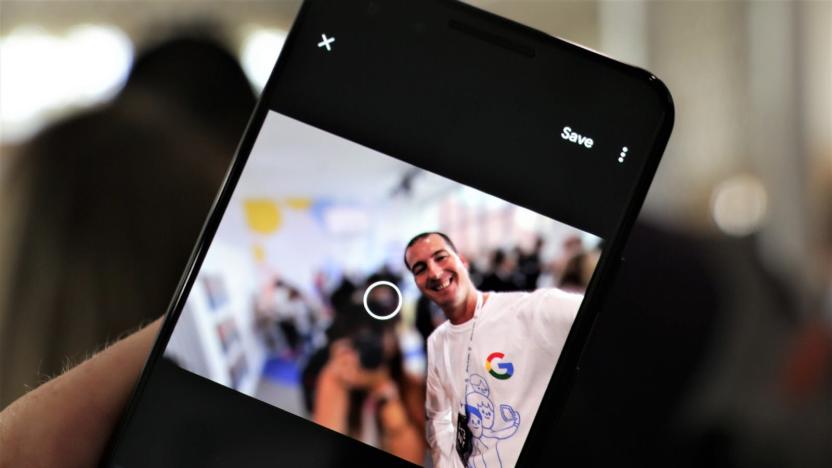
Google explains the Pixel 3's improved AI portraits
Google's Pixel 3 takes portrait photos that are more accurate than its predecessor could take when new, which is no mean feat when you realize that the upgrade comes solely through software. But just what is Google doing, exactly? The company is happy to explain. It just posted a look into the Pixel 3's (or really, the Google Camera app's) Portrait Mode that illustrates how its AI changes produce portraits with fewer visual glitches.

AI faithfully recreates paintings with the help of 3D printing
It's easy to get a basic reproduction of a painting, but getting a truly accurate copy is harder than you think. Modern 2D printers typically only have four inks to work with, which simply won't do if you're trying to mimic a classic. Researchers at MIT's CSAIL might have a much better solution -- they've developed RePaint, a system that recreates artwork using an AI-guided 3D printer. The technology promises color-accurate reproductions even in less-than-flattering conditions.

Instagram adds new photo descriptions for visually impaired users
Instagram announced today a plan to make its platform more accessible for visually impaired users. The company is introducing alternative text for photos that provide a description of a given image. Those descriptions can be read by screen readers so visually impaired readers can hear about the photos in their feed.

Google pulls gender pronouns from Gmail Smart Compose to reduce bias
Gmail's Smart Compose can save you valuable time when you're firing off a quick message, but don't expect it to refer to people as "him" or "her" -- Google is playing it safe on that front. Product leaders have revealed to Reuters that Google removed gender pronouns from Smart Compose's phrase suggestions after realizing that the AI-guided feature could be biased. When a scientist talked about meeting an investor in January, for example, Gmail offered the follow-up "do you want to meet him" -- not considering the possibility that the investor could be a woman.
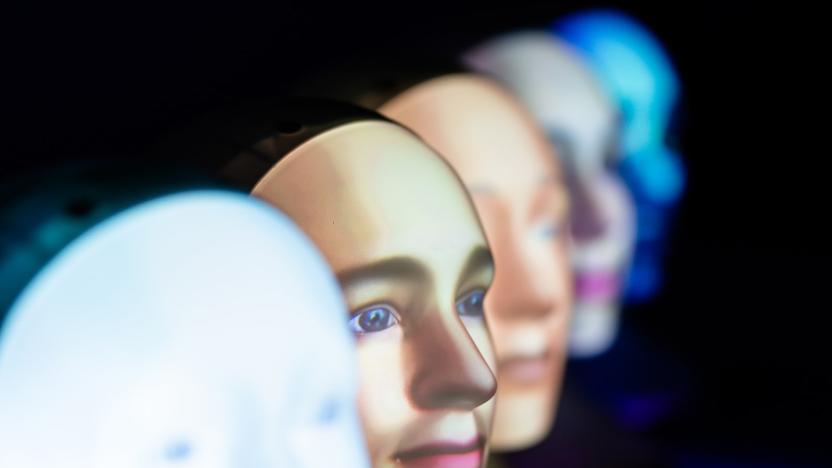
Furhat is a social robot for every situation
Earlier this month, Furhat Robotics launched its face-swapping social robot after many years of development and prototyping, which began at the Royal Institute of Technology in Stockholm, Sweden. Unlike the majority of robots, Furhat isn't built with any particular purpose in mind. In fact, that's the whole point. The disembodied bust can look and sound like all kinds of different, virtual people; it can take on any number of personalities. It's pitched as a new type of computer interface -- more engaging and understanding than any screen or smart speaker or AI chatbot. And as CEO Samer Al Moubayed puts it, Furhat isn't a replacement for people, but an answer to the absence of robots.

Google's conversational Duplex AI rolls out to some Pixel owners
After months of hype, Google's reservation-placing Duplex AI is available to the general public -- if only just. The company has confirmed to VentureBeat that Duplex is rolling out to a "small group" of Pixel phone users in "select cities." It wasn't specific about those cities, but it likely includes the previously announced cities of Atlanta, New York City, Phoenix and San Francisco. Google is starting with a "slow rollout" to ensure a "good experience" for both Pixel owners and businesses,
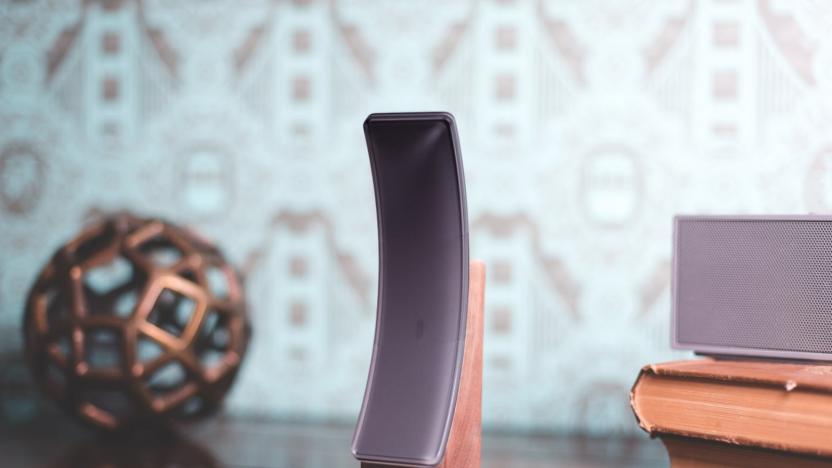
Apple buys privacy-minded AI startup Silk Labs
Apple has been on a AI-centric hiring spree this year, having lured over Google's former AI chief to head a new team combining its core machine learning and Siri groups as well as numerous software engineers. Somewhere along the way it also quietly acquired privacy-centric AI startup Silk Labs, per The Information.

Most Americans believe algorithms will always be biased
If you're convinced that many algorithms are biased, you're not the only one. Pew has conducted a survey indicating that 58 percent of American adults believe algorithms and other programming will always contain some kind of human bias. That figure is partly skewed by age (63 percent of those over 50 didn't believe algorithms could be completely neutral), but even the relatively optimistic 18-29 crowd showed some distrust, with 48 percent believing there would still be some bias.
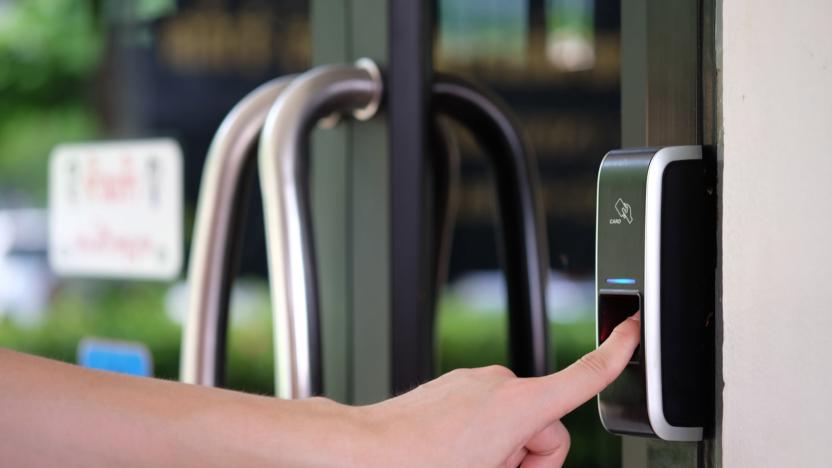
AI can create synthetic fingerprints that fool biometric scanners
Researchers from New York University have found a way to produce fake fingerprints using artificial intelligence that could fool biometric scanners (or the human eye) into thinking they're the real deal. The DeepMasterPrints, as the researchers are calling them, replicated 23 percent of fingerprints in a system that supposedly has an error rate of one in a thousand. When the false match rate was one in a hundred, the DeepMasterPrints were able to mimic real prints 77 percent of the time.
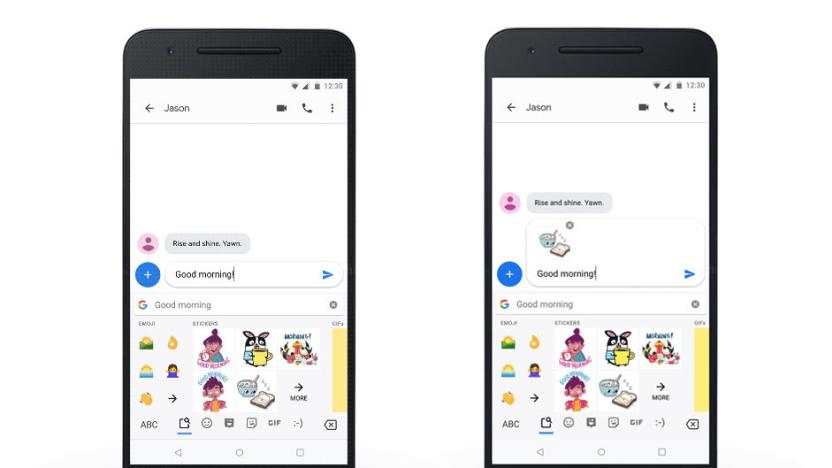
Google adds GIF and emoji recommendations to Gboard
Users of Gboard are about to see their keyboard get a lot smarter. Google announced that its first-party keyobard will use artificial intelligence to recommend GIFs, emoji and stickers based on the context of the conversation you're having. The new suggestion feature will start rolling out today for English speaking users on Android, with more languages to come in the future. Google didn't make mention of the feature coming to iOS.

The New York Times taps Google's AI to find stories in old photos
The New York Times has somewhere in the realm of five to seven million physical photos in its enormous archive, many of which date back more than a century. The images document vital moments and contain valuable records of our recent history, but the hard copies are vulnerable to deterioration (they fortunately survived flooding in 2015). To protect the photos, the Times is digitizing the archive with Google Cloud.
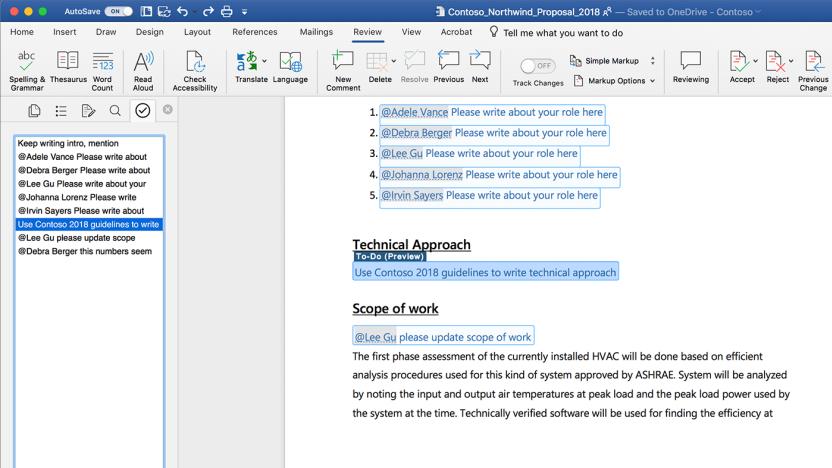
Microsoft Word will automatically create to-do lists for you
Microsoft will start turning the notes you leave in Word documents into to-do lists. The company is testing a new feature in its word processor that will automatically detect notes and messages left for yourself and others and turn them into actionable lists. The beta version of the feature is available for some Office for Mac Insiders starting today and will roll out to Windows testers in the coming weeks.

Samsung opens Bixby assistant to developers
Samsung is widening Bixby's reach in a big way. The company is opening its AI assistant to developers, giving them the power to build their own Bixby-based apps. A Bixby Marketplace will even help developers make money from the intelligent companion. There will be a Bixby Developer Studio tool for writing Bixby-friendly code.
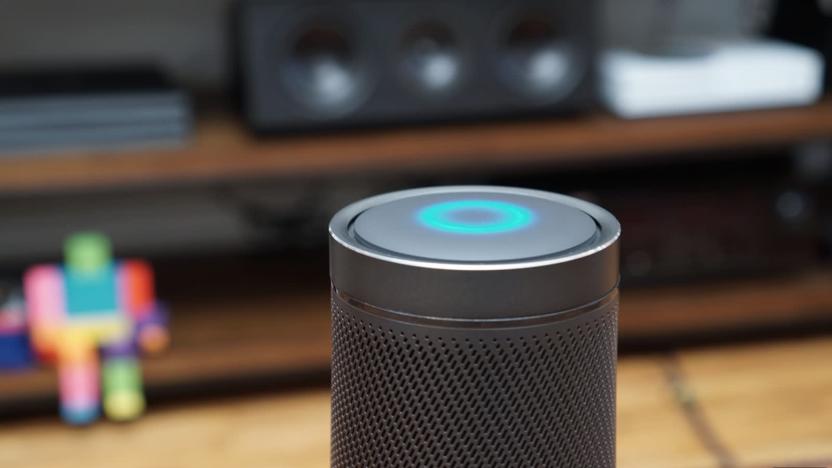
Microsoft's Cortana boss is reportedly leaving the company
Cortana's role at Microsoft is evolving (who'd have thought Alexa and Cortana would play nicely?), and the team in charge of the AI assistant looks to be changing as well. ZDNet sources claim that Microsoft's Corporate VP of Cortana, Javier Soltero, is leaving by the end of 2018. The executive, who came to Microsoft when it bought mail startup Accompli in 2014, reportedly plans to return to entrepreneurial pursuits.
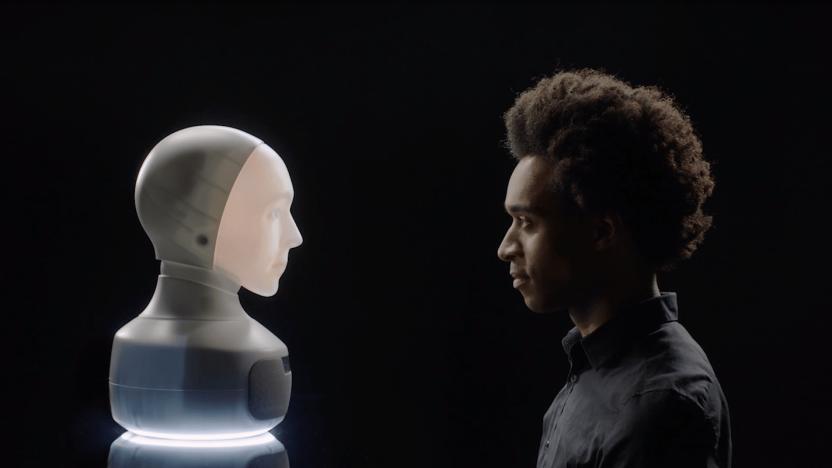
Furhat Robotics gives AI a face with its new social robot
Voice assistants have their benefits, but it can be a bit weird to talk to a faceless robot voice all day. Stockholm-based technology startup Furhat Robotics is putting a face to our interactions with AI with Furhat, a social robot that is capable of displaying humanlike expressions and emotions on a customizable face. The company showed off the latest generation of the social robot today at WebSummit.





